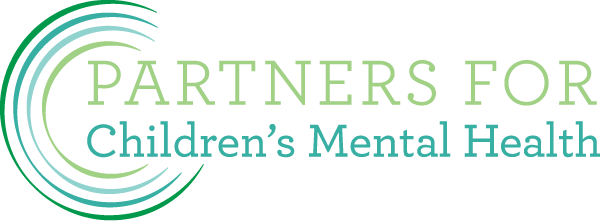Health equity has long been an issue in Colorado. We know that for our rural, frontier, mountain, tribal and urban communities, geographic location or ability to pay can have a significant impact on the quality of mental health services families receive.
The COVID-19 pandemic has only made this worse. A new survey from the Colorado Health Foundation found that 53% of Coloradans say they have experienced increased mental health strain during the pandemic, including anxiety, stress, and loneliness. The survey found the strain to be greatest for those who make the least and those who are younger.
Despite increased need, individuals across Colorado are often faced with access issues and a lack of mental health resources. As a statewide training and technical assistance center, we’re taking a step to help change that.
Launching a virtual training center
While our pre-COVID trainings were primarily held in person, we’re working to accommodate changing needs through a statewide virtual training center. The center includes free live online and on-demand suicide prevention trainings.
Location or income shouldn’t limit one’s access to, or knowledge of, suicide prevention strategies and evidence-based tools. The aim is to help reach the workforce and families in rural, frontier, mountain, tribal, and urban communities throughout Colorado.
Today, we unveiled our first on-demand training: Utilizing DBT skills with youth
This training is built to provide support for mental health professionals working with youth. The series covers the modules and select skills from Dialectical Behavioral Therapy (DBT). DBT is a therapeutic approach focused on building skills around mindfulness, stress management, and healthy relationships.
We have also begun hosting live Question, Persuade and Refer (QPR) trainings. QPR prepares professionals to intervene when working with someone who they are concerned is having thoughts of suicide.
Over the next several months, we’re planning to add more on-demand trainings, as well as continue to offer several live online trainings each month. Depending on the topic, these trainings will be tailored for community members, school staff, primary care professionals.
Creating culturally and linguistically responsive trainings
As we develop this virtual training center and continue our overall workforce development efforts across the state, we know we must apply an equity lens as we consider content distributed, target audiences, and types of programs offered.
Specifically, we’re planning to support the diverse mental health needs of Colorado communities by:
- Involving youth and other community members in the process of selecting the training programs we deliver, identifying the priority populations for our services, identifying meaningful outcomes to track, and developing reports and information that are tailored to the interests of various audiences.
- Improving language access to already-existing tools and programs for non-English speakers and advocating for and participating in the translation of materials, assessment and intervention tools and the support of providers who speak multiple languages.
- Improving access to tools, services and resources for our friends and neighbors living with intellectual, physical, and cognitive disabilities.
- Working with partners from multiple disciplines (biomedical, public health, anthropology, sociology, community-based, family and youth voice) to support ongoing assessment of and reflection about whether and how evidence-based practices are meeting the needs of the diverse communities of Colorado.
- Partnering with policymakers and state and local government to identify the structural and systemic barriers to supporting a more diverse mental health workforce in Colorado.
- Joining other training and service organizations throughout Colorado to provide training on life-saving mental health information, tools and skills to youth, families, community members, unlicensed and licensed professionals.
The PCMH training team will be using the following resources, among others, to guide and hold ourselves accountable in achieving equity in our work:
- Department of Health & Human Services, Office of Minority Health: Implementation Checklist for the National CLAS Standards
- The National Center for Cultural Competence: Resources for Improving Cultural Competence
- Nexus Community Partners: Community Engagement Assessment Tool
We’ve set an ambitious goal to train 10,000 Coloradans — including school staff, mental health providers, primary care providers, parents, and other community members — in suicide prevention strategies by the end of 2023. Through our virtual center and more culturally and linguistically responsive trainings, our hope is that many of the individuals trained will be from the areas that need it most.

